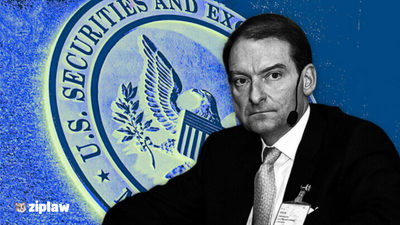It's a Monopoly, Google

Hey ZipLawyer! Here's how this week's news impact law firms.
🤝 Meta and Google's dodgy deal
🚗 China's EV companies consolidate
⚖️ Google loses monopoly case
💸 Crowdstrike Trouble continues
What you need to know this week

🚀 Musk Sues OpenAI: Elon Musk launched a new lawsuit against OpenAI and Sam Altman, claiming their "fake humanitarian mission" misled investors. John Schulman, an OpenAI co-founder, left to join rival Anthropic.
⚖️ Google Antitrust Win: The US Justice Department won its antitrust case against Google, finding it maintained a monopoly by paying companies to make it the default search engine. More on this below.
💼 Glencore Keeps Coal: Glencore decided against spinning off its coalmining assets after shareholders preferred to retain the profitable business, reflecting a shift from ESG goals to profit focus in the energy sector.
📺 Warner Bros Discovery: Warner Bros Discovery wrote down the value of its legacy TV channels, including CNN, by $9.1bn, reflecting rapid industry changes since its 2021 merger.
🍷 Wine Shift: Treasury Wine Estates, Australia’s biggest wine producer, is selling off cheaper brands like Blossom Hill to focus on higher-priced wines like Penfolds, as consumers drink less but spend more per bottle.
Tech Giants’ Sneaky Deal Exposed

What’s going on here?
Google and Meta secretly teamed up to target teenagers with Instagram ads on YouTube, skirting Google's rules for under-18s.
What does this mean?
Despite fierce competition, Google and Meta joined forces to lure teens from YouTube to Instagram. Using a loophole, they targeted the “unknown” category, which often includes under-18s, violating Google’s own ad policies. Spark Foundry, an ad agency, helped launch this project in Canada and the US. The campaign aimed to boost Meta’s youth engagement amid growing competition from TikTok. Google claims safeguards worked but plans stricter internal controls. Meanwhile, lawmakers push for stricter regulations on Big Tech, spotlighting the need for better protection of young online users. This sneaky collaboration underscores the ongoing tension between profit and ethical responsibility in Silicon Valley.
How does this impact Law Firms?
Regulatory and Compliance Law: With Google and Meta’s alleged targeting of under-18s, compliance lawyers will be busy ensuring tech companies adhere to advertising regulations and data protection laws. Lawyers will guide these companies through complex legal frameworks, helping them adjust their advertising practices to avoid fines and litigation. Specifically, they will scrutinise advertising campaigns to ensure they are not indirectly targeting minors, in accordance with the UK’s Age-Appropriate Design Code (Children’s Code).
Data Protection and Privacy Law: The potential misuse of personal data in targeting under-18s will prompt an increase in demand for privacy law expertise. Lawyers will assist clients in conducting thorough data audits and ensuring compliance with the General Data Protection Regulation (GDPR). They will also represent companies in investigations or litigations arising from data breaches. For example, they may need to advise on responding to a regulatory investigation by the Information Commissioner’s Office (ICO) concerning improper data usage and targeting practices.
Litigation and Dispute Resolution: As regulatory bodies and affected parties take action, there will be a surge in litigation related to these advertising practices. Lawyers in this department will represent companies in court or in settlement negotiations. They will handle cases involving breaches of consumer protection laws, data privacy violations, and false advertising claims. Specifically, they might represent a tech company in a class action lawsuit filed by parents on behalf of their children, alleging that the company’s practices were deceptive and harmful to minors.
Google Gets Checked

What’s going on?
In more bad news for big tech, a US judge ruled that Google maintained an illegal monopoly over online search by paying $26bn to be the default search engine on most devices.
What does it mean?
Judge Amit Mehta’s verdict marks a significant blow to Google, labelling the tech giant as a monopolist. By forking out billions to secure prime placement on smartphones and browsers, Google effectively froze out rivals like Bing, according to the US Department of Justice (DOJ). This decision could disrupt Google’s business model and foster more competition in the search market. Google plans to appeal, arguing its dominance stems from user preference, not forced exclusivity. This ruling may also signal a tougher stance on Big Tech under President Biden remaining time in office, setting a precedent for future antitrust battles.
How Does This Impact Law Firms?
Competition Law: The ruling against Google for maintaining an illegal monopoly will lead to a significant uptick in competition law work. Firms specialising in this area will be tasked with advising clients on compliance with antitrust laws and representing them in any related litigation. For example, competition lawyers might undertake work related to advising a tech company on how to adjust their business practices to avoid similar antitrust violations, ensuring their contracts and agreements do not breach competition laws.
Litigation and Dispute Resolution: The high-profile nature of this case will spur increased litigation and dispute resolution work, especially for firms representing tech companies or their competitors. Lawyers in this department will likely be involved in preparing and managing complex litigation cases, from initial filings to court proceedings. Specifically, they might work on defending or challenging similar monopolistic practices claims, gathering evidence, and providing strategic litigation advice to tech firms facing similar allegations.
Corporate and Commercial Law: The ruling might lead to tech companies reassessing and renegotiating their commercial agreements and contracts to ensure they are not at risk of similar legal challenges. Corporate lawyers will be essential in drafting and reviewing contracts to ensure compliance with antitrust regulations. For instance, they might work on revising agreements between tech companies and device manufacturers to ensure these contracts are structured in a way that promotes fair competition and does not violate antitrust laws.
China's Battery Woes

What’s going on?
China's battery industry is consolidating rapidly, with numerous gigafactory projects canceled as major players CATL and BYD expand.
What does this mean?
The shake-up is real: 19 battery gigafactory projects were cancelled in the first seven months of 2024, driven by lower demand and competitive pressures. Smaller players are struggling, while giants like CATL and BYD continue to dominate. The Chinese government is tightening regulations to curb overcapacity, aiming to boost efficiency and technological advancement. This regulatory push benefits big names, making it tougher for new entrants. Smaller firms like SVolt and Nanfang Black Sesame Group have abandoned ambitious projects amid market volatility and shifting demand. Meanwhile, leading firms are expanding overseas cautiously, aware of the complex regulatory and geopolitical landscape. Expect more consolidation as the market adjusts to new realities.
How Does This Impact Law Firms?
Corporate and Commercial Law: With the consolidation in China’s battery industry, there will be a surge in mergers and acquisitions (M&A) as smaller companies seek to merge for survival or larger companies acquire strategic assets. Lawyers will be crucial in negotiating and drafting M&A agreements, conducting thorough due diligence to uncover any financial, operational, or legal risks. For instance, lawyers might assist a major player like CATL in acquiring a smaller competitor, ensuring compliance with local and international regulations and identifying any potential liabilities.
Regulatory and Compliance Law: The new regulations introduced by Beijing will require battery manufacturers to meet higher standards, prompting a demand for regulatory and compliance expertise. Lawyers will help companies navigate these stringent requirements, advising on compliance strategies and assisting with regulatory submissions. Lawyers could assist a battery manufacturer like BYD in meeting the updated standards for energy intensity and power density, ensuring their products comply with the latest legal requirements and avoiding potential penalties.
Intellectual Property Law: As competition in the battery industry intensifies, companies will increasingly seek to protect their technological innovations and proprietary processes. Lawyers specialising in intellectual property (IP) will be essential in securing patents, defending against IP infringement, and negotiating licensing agreements. For instance, an IP lawyer might help a company like SVolt Energy Technology patent a new battery technology, safeguarding their intellectual property and providing a competitive edge in the market.
Crowdstrike Trouble continues

What’s going on here?
Delta Air Lines is blaming CrowdStrike for a software glitch that grounded thousands of flights and cost the airline $500 million.
What does this mean?
Delta’s IT issues escalated after a faulty CrowdStrike update affected millions of Windows computers worldwide. While rivals United and American Airlines bounced back quickly, Delta lagged, canceling over 6,000 flights and facing passenger fury. Now, Delta wants to sue CrowdStrike, accusing it of negligence. But CrowdStrike hit back, arguing Delta mishandled the recovery and ignored help offers. This tussle could redefine IT responsibility in the airline industry. Meanwhile, the Department of Transportation is investigating Delta’s customer service chaos during the ordeal. Investors and customers are watching closely, wondering how this digital debacle will unfold.
How Does This Impact Law Firms?
Litigation and Dispute Resolution: Delta Air Lines’ looming lawsuit against CrowdStrike will significantly increase demand for litigation lawyers. These lawyers will focus on representing either Delta or CrowdStrike in court, preparing legal strategies, gathering evidence, and presenting arguments. This includes drafting and filing legal motions to dismiss the case or counterclaims to shift blame or mitigate damages, as well as managing complex e-discovery processes to sift through vast amounts of digital evidence.
Commercial Law: The fallout from this incident will necessitate a thorough review and potentially renegotiation of existing contracts between airlines and their IT service providers. Commercial lawyers will be tasked with drafting new contract terms to better allocate risk and responsibility for future IT disruptions. They will draft clauses that clearly define the scope of liability and service level agreements, ensuring that terms are more favourable and protective for their clients.
Regulatory and Compliance Law: The Department of Transportation’s investigation into Delta’s customer service issues will require robust compliance work. Regulatory lawyers will assist Delta in navigating the regulatory landscape, ensuring adherence to federal and state regulations regarding passenger rights and service standards. A specific example of their work involves conducting internal audits to assess Delta’s compliance with airline regulations and preparing responses to regulatory inquiries or investigations to avoid potential fines or sanctions.
Don't forget...
🙏 Our work is reader-supported. Thank you for being amazing!
🎥 Follow us on Instagram here or TikTok here.
📫 Forward this to a friend and tell them to subscribe (hint: it's here)






